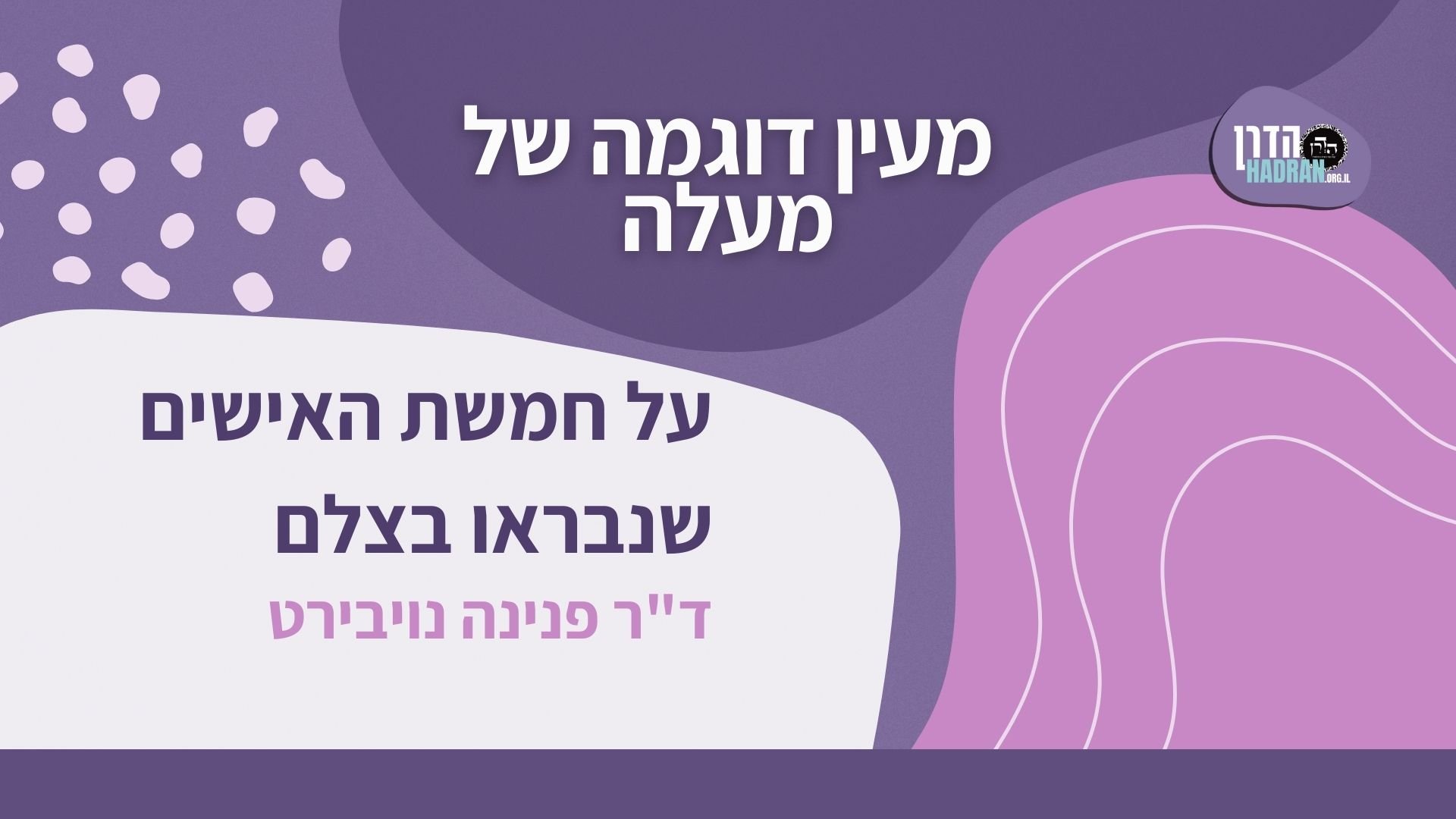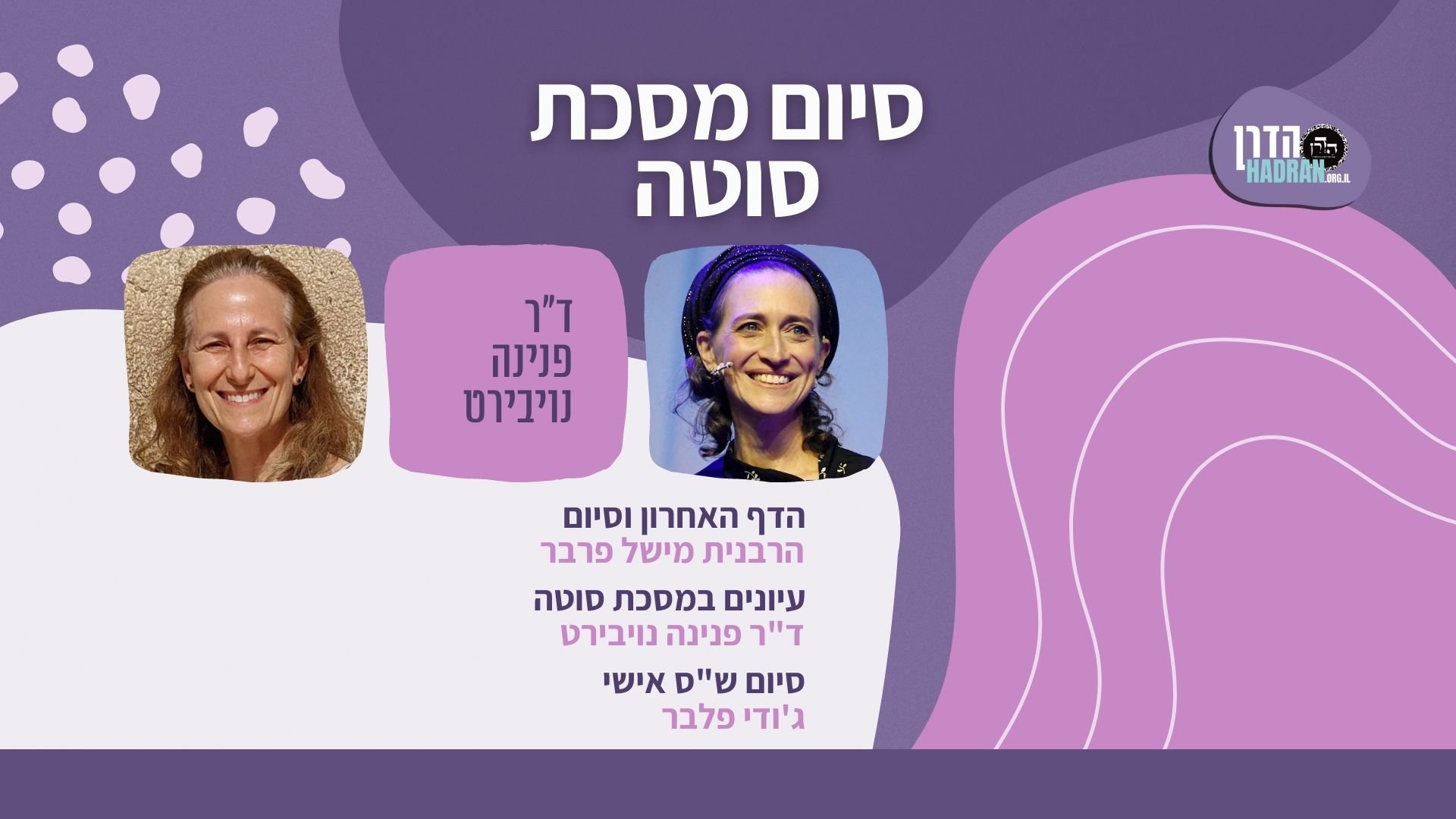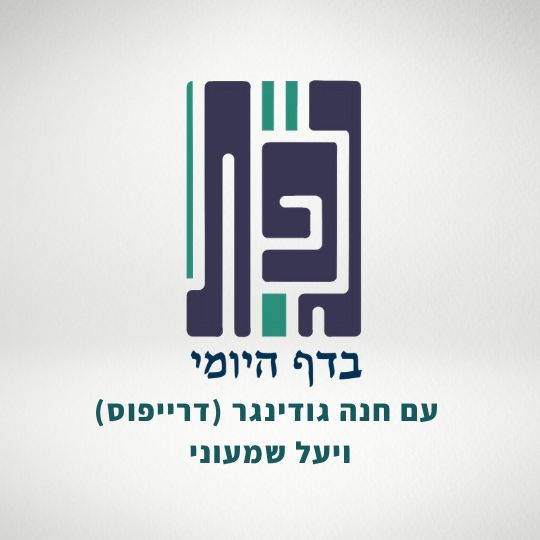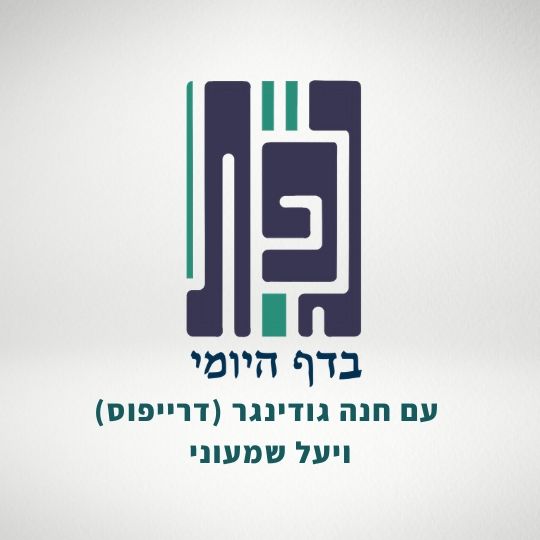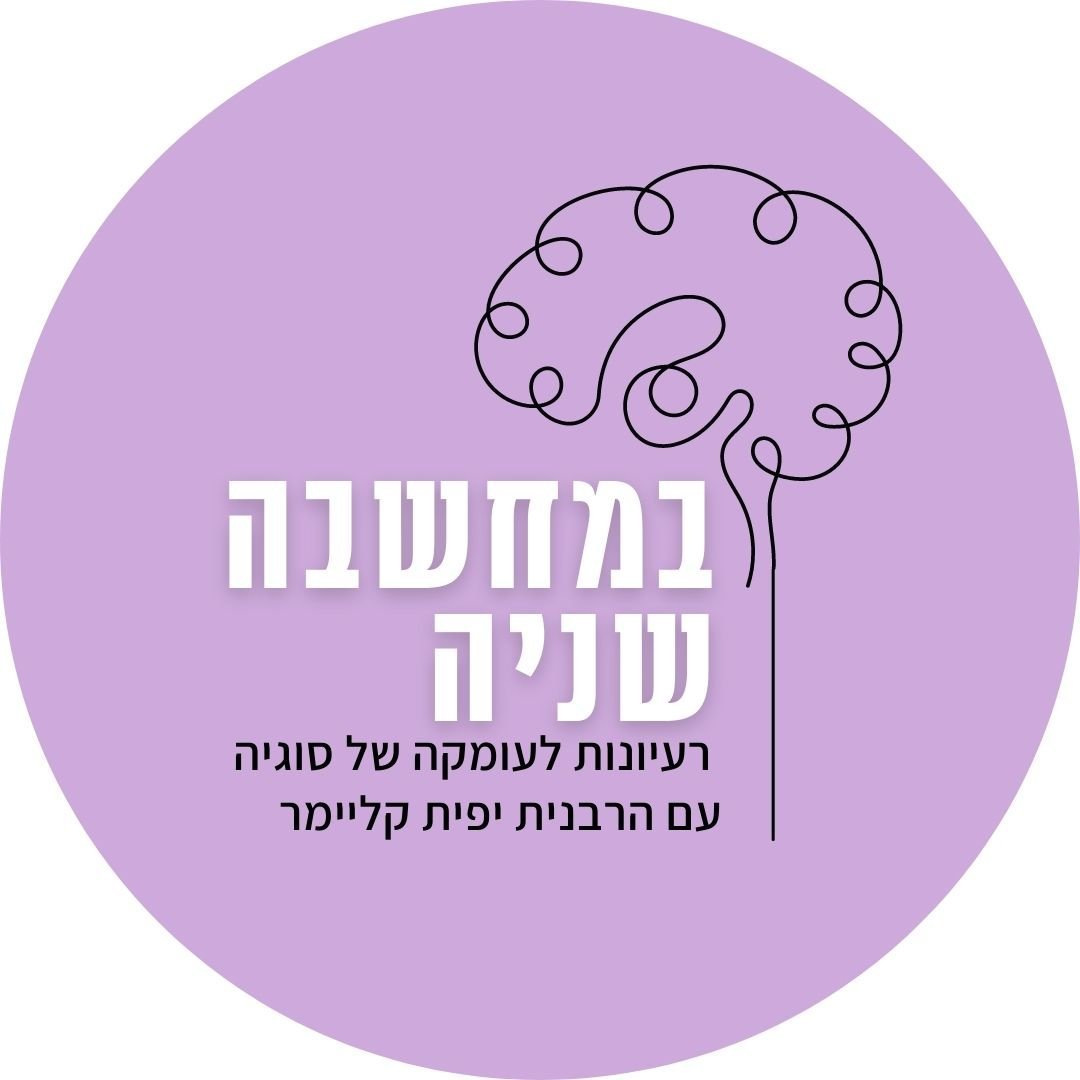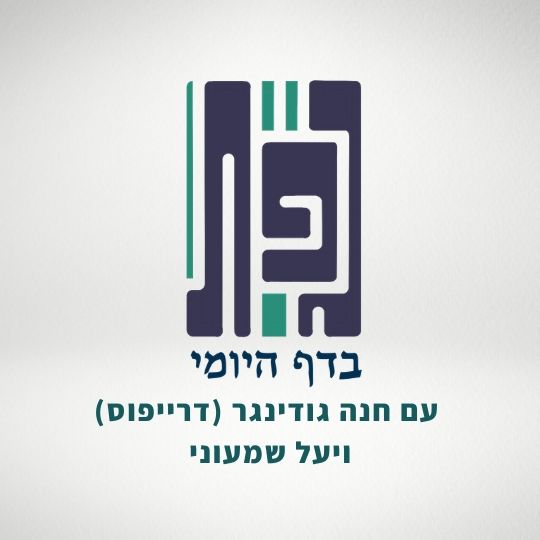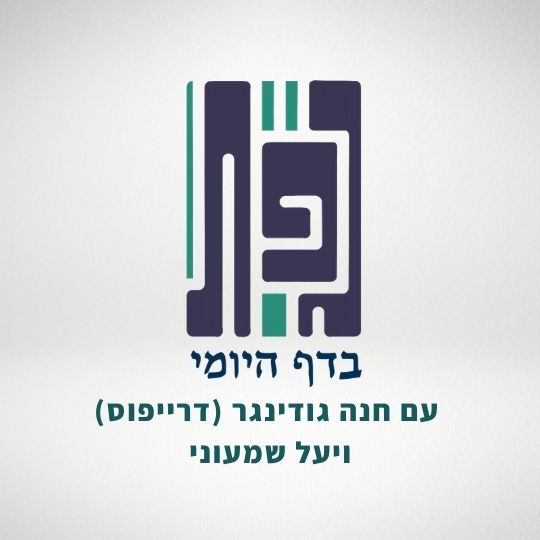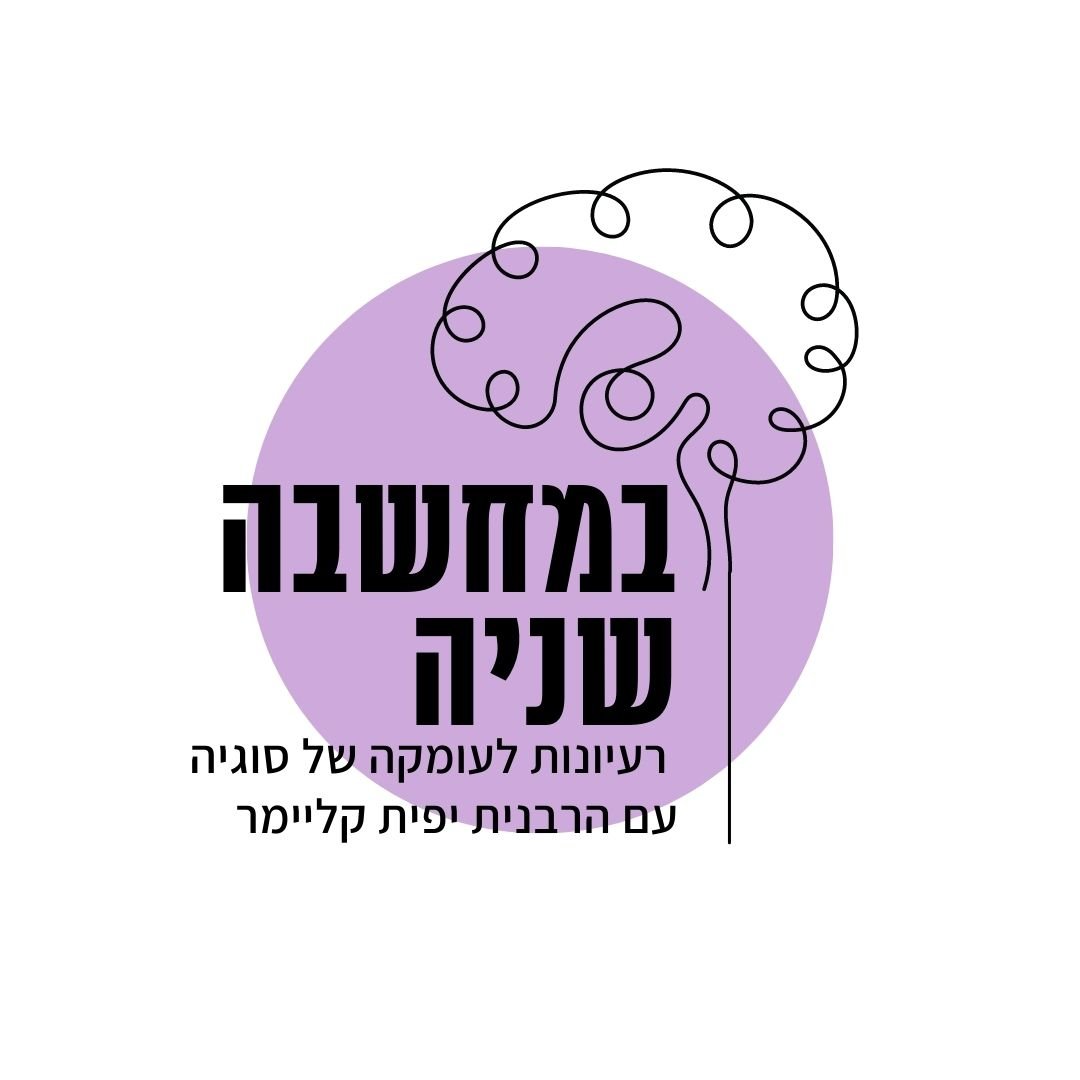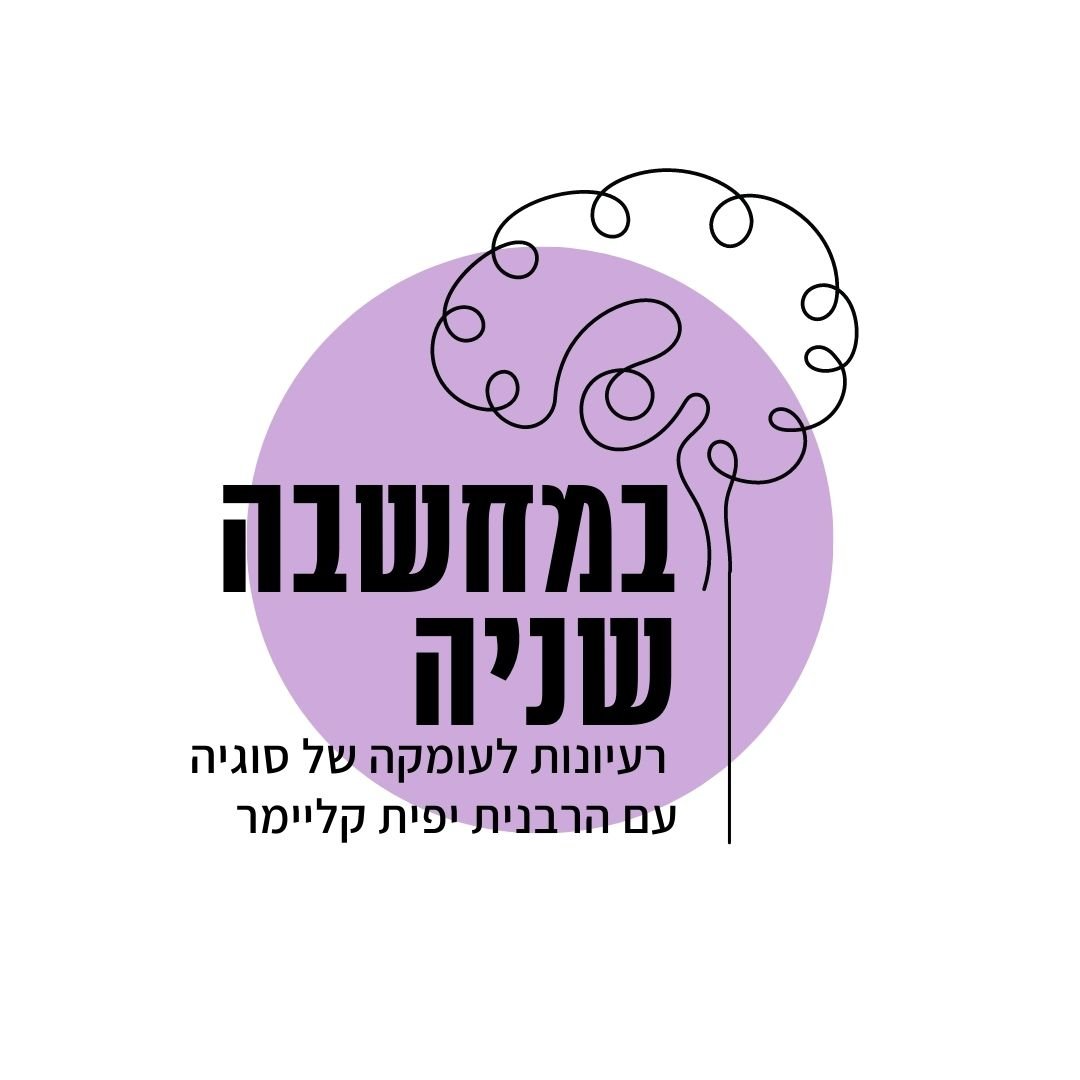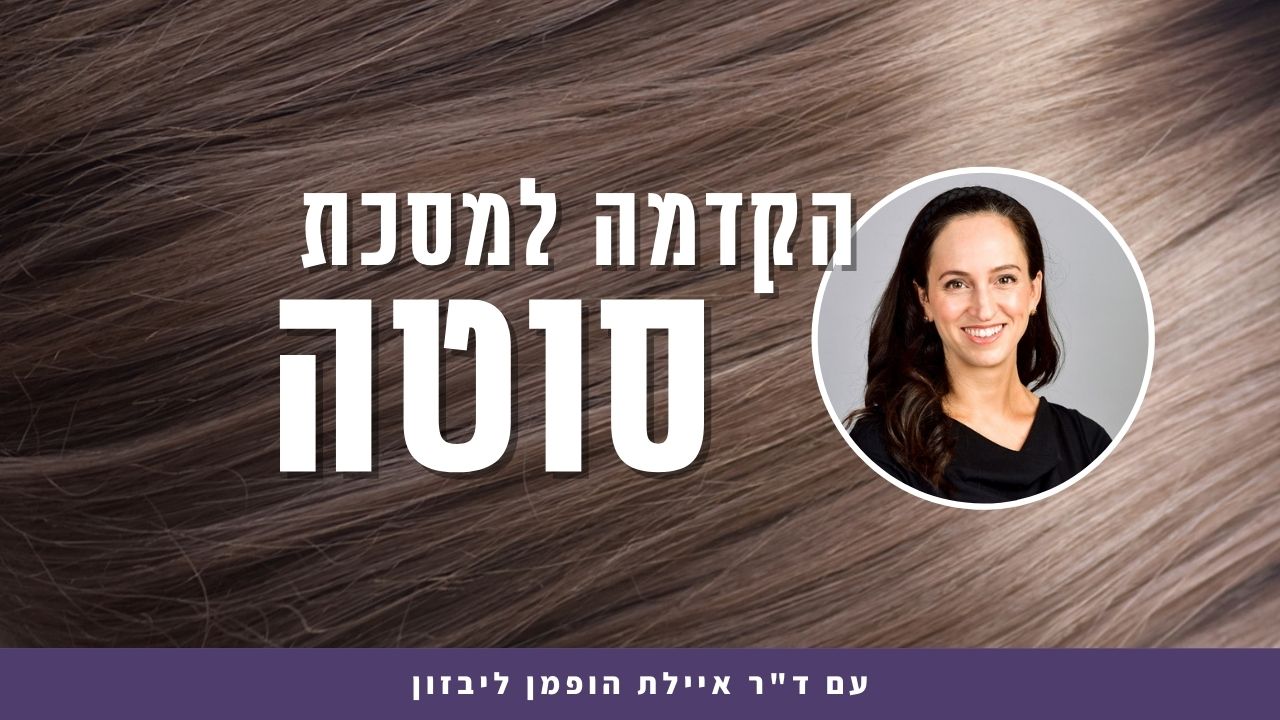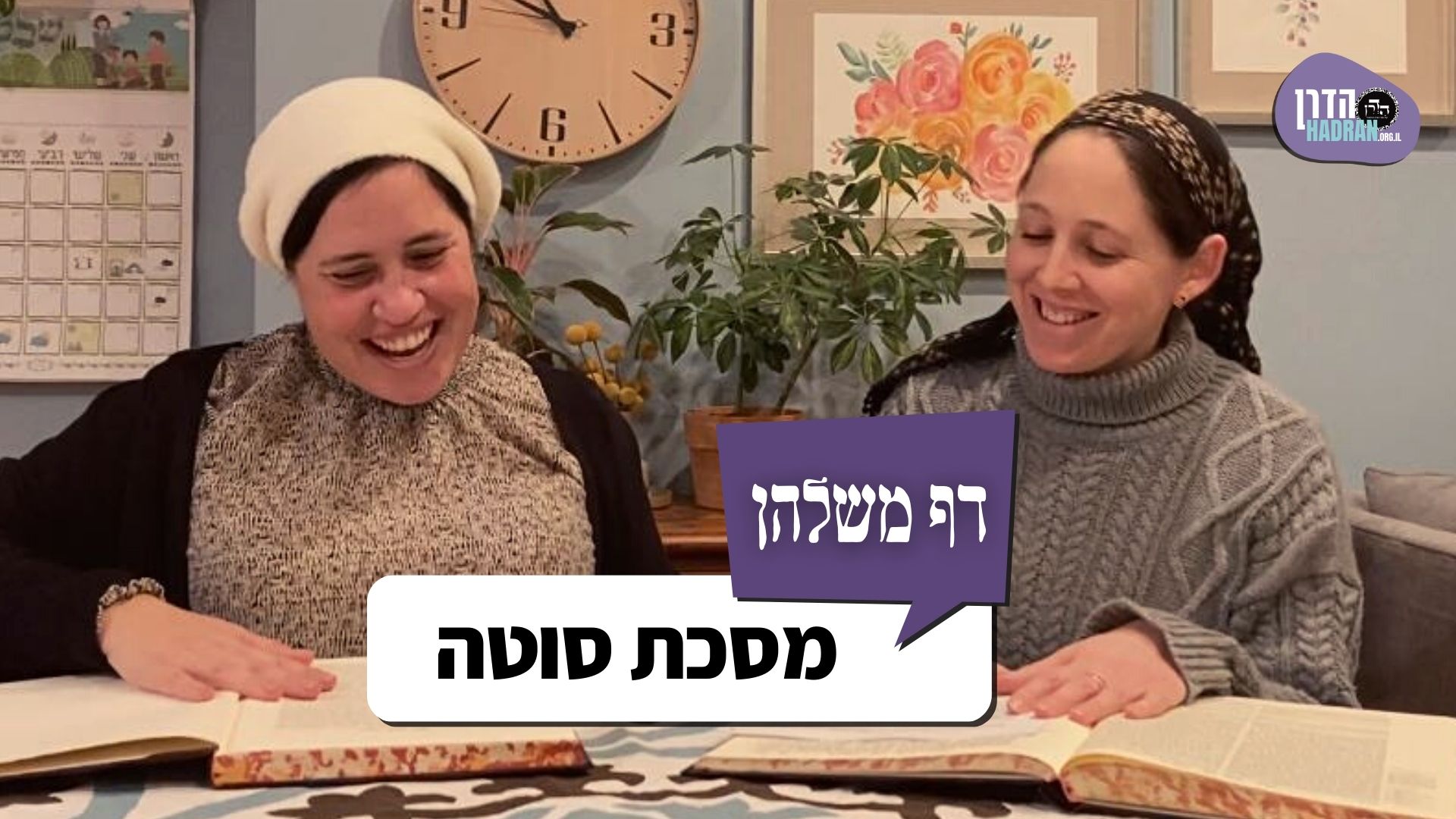סוטה כו
מְעוּבֶּרֶת חֲבֵירוֹ וּמֵינֶקֶת חֲבֵירוֹ — לֹא שׁוֹתוֹת וְלֹא נוֹטְלוֹת כְּתוּבָה, דִּבְרֵי רַבִּי מֵאִיר.
The baraita continues: A woman who was pregnant with the child of another man at the time of her marriage and a woman who was nursing the child of another man at the time of her marriage neither drink the bitter water nor collect payment of their marriage contracts, as their marriages were prohibited by rabbinic law. This is the statement of Rabbi Meir.
שֶׁהָיָה רַבִּי מֵאִיר אוֹמֵר: לֹא יִשָּׂא אָדָם מְעוּבֶּרֶת חֲבֵירוֹ וּמֵינֶקֶת חֲבֵירוֹ, וְאִם נָשָׂא — יוֹצִיא וְלֹא יַחְזִיר עוֹלָמִית. וַחֲכָמִים אוֹמְרִים: יוֹצִיא, וּכְשֶׁיַּגִּיעַ זְמַנּוֹ לִכְנוֹס — יִכְנוֹס.
The baraita continues: The reason for this is as Rabbi Meir would say: A man may not marry a woman who is pregnant with the child of another man or a woman who is nursing the child of another man, until twenty-four months pass after the baby’s birth, so as to ensure that the woman will not become pregnant while the child needs to nurse. And if he married her, he must divorce her and may never remarry her, as the Sages penalized him for transgressing the prohibition. And the Rabbis say: He must divorce her, and when his time to marry her arrives, i.e., twenty-four months after the baby’s birth, he can marry her again.
וְהָרוֹבֶא שֶׁנָּשָׂא עֲקָרָה וּזְקֵינָה, וְאֵין לוֹ אִשָּׁה וּבָנִים מֵעִיקָּרָא — לֹא שׁוֹתָה וְלֹא נוֹטֶלֶת כְּתוּבָּה. רַבִּי אֶלְעָזָר אוֹמֵר: יָכוֹל הוּא לִישָּׂא אַחֶרֶת וְלִפְרוֹת וְלִרְבּוֹת הֵימֶנָּה.
The baraita continues: In the case of a young man who married a barren woman or an elderly woman, and he did not have a wife and children beforehand, the woman neither drinks nor collects payment of her marriage contract, as it is prohibited for him to marry a woman with whom he cannot procreate. Rabbi Elazar says: This marriage is not forbidden, as he can marry another woman and procreate through her, and therefore she can drink the bitter water.
אֲבָל הַמְקַנֵּא לַאֲרוּסָתוֹ וּלְשׁוֹמֶרֶת יָבָם שֶׁלּוֹ, וּמִשֶּׁכְּנָסָהּ נִסְתְּרָה — אוֹ שׁוֹתָה, אוֹ לֹא נוֹטֶלֶת כְּתוּבָּה. מְעוּבֶּרֶת וּמֵינֶקֶת עַצְמוֹ — אוֹ שׁוֹתָה, אוֹ לֹא נוֹטֶלֶת כְּתוּבָּתָהּ. הָרוֹבֶא שֶׁנָּשָׂא עֲקָרָה וּזְקֵינָה, וְיֵשׁ לוֹ אִשָּׁה וּבָנִים — אוֹ שׁוֹתָה, אוֹ לֹא נוֹטֶלֶת כְּתוּבָּה.
The baraita continues: However, in the case of one who issued a warning to his betrothed, or to his yevama while she was a widow awaiting her yavam, and she secluded herself with the other man after he consummated the marriage, she either drinks the bitter water or does not collect payment of her marriage contract. If his own pregnant or nursing wife becomes a sota, then despite the concern that the bitter water may harm the fetus, she either drinks the bitter water or does not collect payment of her marriage contract. In the case of a young man who married a barren woman or an elderly woman, and he already had a wife and children and was therefore permitted to marry his barren or elderly wife, the woman either drinks the bitter water or does not collect payment of her marriage contract.
אֵשֶׁת מַמְזֵר לְמַמְזֵר, וְאֵשֶׁת נָתִין לְנָתִין, וְאֵשֶׁת גֵּר וְעֶבֶד מְשׁוּחְרָר, וְאַיְילוֹנִית — אוֹ שׁוֹתָה, אוֹ לֹא נוֹטֶלֶת כְּתוּבָּה. קָתָנֵי מִיהָא אַיְילוֹנִית, תְּיוּבְתֵּיהּ דְּרַב נַחְמָן!
The baraita concludes: With regard to the wife of a mamzer who is married to a mamzer in a permitted marriage, and the wife of a Gibeonite who is married to a Gibeonite in a permitted marriage, and the wife of a convert or an emancipated slave, and a sexually underdeveloped woman, if any of these women becomes a sota she either drinks the bitter water or does not collect payment of her marriage contract, as the marriage is permitted. After citing the entire baraita, the Gemara explains the difficulty: In any event, the baraita teaches that a sexually underdeveloped woman can drink the bitter water if the marriage is permitted, and this is a conclusive refutation of the opinion of Rav Naḥman.
אָמַר לְךָ רַב נַחְמָן: תַּנָּאֵי הִיא, וַאֲנָא דַּאֲמַרִי כִּי הַאי תַּנָּא, דְּתַנְיָא, רַבִּי שִׁמְעוֹן בֶּן אֶלְעָזָר אוֹמֵר: אַיְילוֹנִית — לֹא שׁוֹתָה וְלֹא נוֹטֶלֶת כְּתוּבָּה, שֶׁנֶּאֱמַר: ״וְנִקְּתָה וְנִזְרְעָה זָרַע״ — מִי שֶׁדַּרְכָּהּ לְהַזְרִיעַ. יָצָאתָה זוֹ — שֶׁאֵין דַּרְכָּהּ לְהַזְרִיעַ.
The Gemara answers: Rav Naḥman could have said to you: There is a dispute between tanna’im with regard to this matter, and I state my opinion in accordance with the opinion of this tanna, as it is taught in a baraita: Rabbi Shimon Ben Elazar says: A sexually underdeveloped woman neither drinks nor collects payment of her marriage contract, as it is stated: “And she shall be cleared, and shall conceive seed” (Numbers 5:28), indicating that the sota ritual pertains only to one whose way is to bear seed and give birth, excluding this sexually underdeveloped woman, whose way is not to bear seed.
וְרַבָּנַן, הַאי ״וְנִקְּתָה וְנִזְרְעָה זָרַע״ מַאי עָבְדִי לֵיהּ? מִיבְּעֵי לְהוּ לְכִדְתַנְיָא: ״וְנִקְּתָה וְנִזְרְעָה [זָרַע]״, שֶׁאִם הָיְתָה עֲקָרָה נִפְקֶדֶת, דִּבְרֵי רַבִּי עֲקִיבָא. אָמַר לוֹ רַבִּי יִשְׁמָעֵאל: אִם כֵּן, יִסָּתְרוּ כׇּל הָעֲקָרוֹת וְיִפָּקְדוּ, וְזוֹ, הוֹאִיל וְלֹא נִסְתְּרָה הִפְסִידָה?!
The Gemara asks: And as for the Rabbis, what do they do with this verse: “And she shall be cleared, and shall conceive seed”? Since they hold that a sexually underdeveloped woman drinks the bitter water, what do they derive from the verse? The Gemara answers: They require it for that which is taught in a baraita: The verse: “And she shall be cleared, and shall conceive seed” (Numbers 5:28), indicates that if she was barren, she will be remembered and conceive a child; this is the statement of Rabbi Akiva. Rabbi Yishmael said to him: If so, all the barren women will seclude themselves with other men, and they will be remembered and conceive after drinking the bitter water and being found innocent; but that virtuous barren woman, who does not transgress the prohibition of seclusion, since she does not seclude herself with other men, she loses the opportunity to receive this blessing.
אִם כֵּן, מָה תַּלְמוּד לוֹמַר: ״וְנִקְּתָה וְנִזְרְעָה זָרַע״, שֶׁאִם הָיְתָה יוֹלֶדֶת בְּצַעַר — יוֹלֶדֶת בְּרֶיוַח, נְקֵבוֹת — יוֹלֶדֶת זְכָרִים, קְצָרִים — יוֹלֶדֶת אֲרוּכִּים, שְׁחוֹרִים — יוֹלֶדֶת לְבָנִים.
Rabbi Yishmael continues: If so, what is the meaning when the verse states: “And she shall be cleared, and shall conceive seed” (Numbers 5:28)? This means that if in the past she would give birth in pain, from then on she will give birth with ease; if she gave birth to females, she will now give birth to males; if her children were short, she will now give birth to tall children; if her children were black, she will give birth to white children.
אֵשֶׁת מַמְזֵר לְמַמְזֵר. פְּשִׁיטָא! מַהוּ דְּתֵימָא: אַפּוֹשֵׁי פְּסוּלִין לָא לַיפֵּשׁ, קָא מַשְׁמַע לַן.
§ The baraita in the Tosefta cited above states: The wife of a mamzer who is married to a mamzer in a permitted marriage… either drinks the bitter water or does not collect payment of her marriage contract. The Gemara asks: Isn’t that obvious? Since their marriage is permitted, why should the sota ritual not apply? The Gemara answers: It is necessary lest you say that she should not drink, since if she drinks and is found to be innocent of adultery, she is permitted to her husband. This is undesirable since their offspring are also mamzerim, and we do not cause the number of individuals of flawed lineage to proliferate. The baraita in the Tosefta therefore teaches us that this is not a concern, and the wife of a mamzer is permitted to drink.
אֵשֶׁת גֵּר וְעֶבֶד מְשׁוּחְרָר וְאַיְילוֹנִית. פְּשִׁיטָא?
The aforementioned baraita in the Tosefta states: The wife of a convert or an emancipated slave, and a sexually underdeveloped woman can drink the bitter water. The Gemara asks with regard to the wife of a convert or an emancipated slave, who also has the status of a convert: Isn’t that obvious? Since their marriage is permitted, why should the sota ritual not apply?
מַהוּ דְּתֵימָא: ״דַּבֵּר אֶל בְּנֵי יִשְׂרָאֵל״, וְלֹא גֵּרִים, קָא מַשְׁמַע לַן. וְאֵימָא הָכִי נָמֵי! ״וְאָמַרְתָּ״ — רִבּוּיָא הוּא.
The Gemara answers: It is necessary lest you say that she does not drink, as the verse states: “Speak to the children of Israel, and say unto them: If the wife of any man goes astray, and acts unfaithfully against him” (Numbers 5:12). One might have inferred from this verse that the sota ritual applies only to those born as Jews and not to converts; the baraita in the Tosefta therefore teaches us that this is not so. The Gemara asks: Why not say that indeed the verse excludes converts? The Gemara answers: The subsequent term: “And say unto them” (Numbers 5:12) is an amplification, which serves to include converts.
אֵשֶׁת כֹּהֵן שׁוֹתָה כּוּ׳. אֵשֶׁת כֹּהֵן שׁוֹתָה — פְּשִׁיטָא! מַהוּ דְּתֵימָא: ״וְהִיא לֹא נִתְפָּשָׂה״ — אֲסוּרָה, הָא נִתְפָּשָׂה — מוּתֶּרֶת. וְזוֹ, הוֹאִיל וְנִתְפָּשָׂה אֲסוּרָה — אֵימָא לָא תִּשְׁתֵּה, קָא מַשְׁמַע לַן.
§ The mishna states: The wife of a priest drinks the bitter water, and if she is found to be innocent of adultery she is permitted to her husband. The Gemara asks: Why does the mishna state: The wife of a priest drinks? Isn’t that obvious? The Gemara answers: It is necessary lest you say that she does not drink, as the verse states: “And a man lay with her…neither was she seized” (Numbers 5:13). This indicates that if the sota was not seized she is forbidden; however, if she was seized, i.e., raped, she is permitted to her husband. And with regard to this woman, the wife of a priest, since even if she was seized she is forbidden to her husband, as a priest may not remain married to his wife if she was raped while they were married, one might say that the sota ritual does not apply to her, and she does not drink. Therefore, the mishna teaches us that she does drink.
וּמוּתֶּרֶת לְבַעְלָהּ. פְּשִׁיטָא! אָמַר רַב הוּנָא: בְּמִתְנַוְּונָה. מִתְנַוְּונָה — הָא בַּדְקוּהָ מַיָּא!
§ The mishna states: The wife of a priest drinks, and if she is found to be innocent of adultery, she is permitted to her husband. The Gemara asks: Isn’t that obvious? Rav Huna says: The mishna is referring to a case where the woman’s health deteriorates after she drinks the bitter water, and one might have thought that she is defiled. The Gemara asks: In the case of a woman whose health deteriorates, hasn’t the bitter water already evaluated that she was unfaithful? The fact that her health deteriorates indicates that she is defiled and forbidden to her husband, and her death is delayed due to her merit in other matters.
בְּמִתְנַוְּונָה דֶּרֶךְ אֵבָרִים. מַהוּ דְּתֵימָא: הָא זַנּוֹיֵי זַנַּאי, וְהָא דְּלָא בַּדְקוּהָ מַיָּא כִּי אוֹרְחַיְה[וּ] — מִשּׁוּם דִּבְאוֹנֶס זַנַּאי, וּלְגַבֵּי כֹּהֵן אֲסִירָא, קָא מַשְׁמַע לַן.
The Gemara answers: The mishna is referring to a case where her health deteriorates, but not in the manner of a sota, who is afflicted in her belly and thighs (see Numbers 5:27). Rather, she is afflicted by way of other limbs. Lest you say: This woman engaged in licentious intercourse, and the fact that the bitter water did not evaluate her in the usual manner is because she engaged in licentious intercourse under duress, and with regard to a priest, even rape renders her forbidden to her husband, the mishna therefore teaches us that the woman’s deteriorating health does not indicate anything.
אֵשֶׁת סָרִיס שׁוֹתָה. פְּשִׁיטָא! מַהוּ דְּתֵימָא: ״מִבַּלְעֲדֵי אִישֵׁךְ״ אָמַר רַחֲמָנָא, וְהַאי לָאו בַּר הָכִי הוּא, קָא מַשְׁמַע לַן.
§ The mishna states: The wife of a eunuch drinks. The Gemara asks: Isn’t that obvious? Since their marriage is permitted, why should the sota ritual not apply? The Gemara replies: It is necessary lest you say that she does not drink, since the Merciful One states with regard to the sota: “But if you have gone astray while under your husband, and if you are defiled, and some man has lain with you besides your husband” (Numbers 5:20). This indicates that her husband had lain with her, and this husband, the eunuch, is not capable of that. The mishna therefore teaches us that the wife of a eunuch does drink the bitter water.
עַל יְדֵי כׇּל עֲרָיוֹת מְקַנִּין. פְּשִׁיטָא!
§ The mishna states: A husband can issue a warning to his wife with regard to all those with whom relations are forbidden, e.g., her father or brother. The Gemara asks: Isn’t that obvious?
מַהוּ דְּתֵימָא: ״נִטְמָאָה״ ״נִטְמָאָה״ שְׁנֵי פְּעָמִים: אֶחָד לַבַּעַל וְאֶחָד לַבּוֹעֵל. הֵיכָא דְּקָא מִיתַּסְרָא בְּהָא זְנוּת, אֲבָל הָא הוֹאִיל וַאֲסוּרָה וְקָיְימָא, אֵימָא לָא, קָא מַשְׁמַע לַן.
The Gemara answers: It is necessary, lest you say that the sota ritual does not apply with regard to forbidden relatives, as the Torah states: “And she was defiled” (Numbers 5:13), “And she was defiled” (Numbers 5:14), two times. One verse teaches that she is defiled and forbidden to her husband, and one verse teaches that she is forbidden to her paramour. One might understand that the sota ritual applies only where she is forbidden to the paramour due to this licentious intercourse; however, with regard to that woman, who secluded herself with a forbidden relative, since the woman already stands prohibited to him due to the prohibition of incest, one might say that the sota ritual does not apply. The mishna therefore teaches us that one can issue a warning even with regard to forbidden relatives.
חוּץ מִן הַקָּטָן וְכוּ׳. ״אִישׁ״ אָמַר רַחֲמָנָא, וְלֹא קָטָן וְשֶׁאֵינוֹ אִישׁ. לְמַעוֹטֵי מַאי? אִילֵּימָא לְמַעוֹטֵי שָׁחוּף, וְהָאָמַר שְׁמוּאֵל: שָׁחוּף מְקַנִּין עַל יָדוֹ, וּפוֹסֵל בִּתְרוּמָה!
§ The mishna states: A husband can issue a warning to his wife with regard to all those with whom relations are forbidden, with the exception of a minor and of one who is not a man. The Gemara cites the source for this halakha: The Merciful One states in the Torah: “And a man lay with her” (Numbers 5:13), indicating that one can warn his wife with regard to a man but not with regard to a minor. The Gemara asks: The phrase: And of one who is not a man, serves to exclude what? If we say that it serves to exclude a sick man who lacks the ability to complete intercourse [shaḥuf], but didn’t Shmuel say: One can issue a warning with regard to a shaḥuf, and if a shaḥuf engages in sexual intercourse with the daughter of a priest, he disqualifies her from partaking of teruma.
מְקַנִּין עַל יָדוֹ, פְּשִׁיטָא! מַהוּ דְּתֵימָא: ״וְשָׁכַב אִישׁ אֹתָהּ שִׁכְבַת זֶרַע״ אָמַר רַחֲמָנָא, וְהָא לָאו בַּר הָכִי הוּא, קָא מַשְׁמַע לַן.
With regard to Shmuel’s statement that one can issue a warning with regard to a shaḥuf, the Gemara asks: Isn’t that obvious? The Gemara answers: It is necessary, lest you say that one cannot issue a warning with regard to a shaḥuf, as the Merciful One states in the Torah: “And a man lay with her carnally [shikhvat zera]” (Numbers 5:13), literally, a lying of seed, and this man is not capable of that, as he cannot ejaculate. Shmuel therefore teaches us that one can issue a warning with regard to a shaḥuf.
וּפוֹסֵל בִּתְרוּמָה. פְּשִׁיטָא! מַהוּ דְּתֵימָא: ״לֹא יְחַלֵּל זַרְעוֹ״ אָמַר רַחֲמָנָא: דְּאִית לֵיהּ זֶרַע — לִיחַלֵּל, דְּלֵית לֵיהּ זֶרַע — לָא לִיחַלֵּל, קָא מַשְׁמַע לַן.
The Gemara asks with regard to Shmuel’s statement that a shaḥuf who engages in sexual intercourse with the daughter of a priest disqualifies her from partaking of teruma: Isn’t that obvious? The Gemara answers: It is necessary lest you say that a shaḥuf does not disqualify the daughter of a priest from partaking of teruma, as the Merciful One states in the Torah with regard to a priest: “And he shall not disqualify his offspring among his people” (Leviticus 21:15). One might infer from this verse that one who can have offspring disqualifies a woman from partaking of teruma, through forbidden sexual intercourse, and that one who cannot have offspring does not disqualify a woman from partaking of teruma. Shmuel therefore teaches us that this is not so. In any event, Shmuel states that one can issue a warning on account of a shaḥuf, unlike the initial interpretation of the mishna.
וְאֶלָּא לְמַעוֹטֵי נׇכְרִי? וְהָאָמַר רַב הַמְנוּנָא: נׇכְרִי מְקַנִּין עַל יָדוֹ וּפוֹסֵל בִּתְרוּמָה.
Since Shmuel’s statement contradicts the suggestion that the mishna excludes a shaḥuf, the Gemara suggests another explanation: Rather, the mishna serves to exclude a gentile, and teaches that one cannot issue a warning with regard to him. The Gemara asks: But didn’t Rav Hamnuna say: One can issue a warning with regard to a gentile, and if a gentile engages in sexual intercourse with the daughter of a priest, he disqualifies her from partaking of teruma.
מְקַנִּין עַל יָדוֹ — פְּשִׁיטָא! מַהוּ דְּתֵימָא ״נִטְמָאָה״ ״נִטְמָאָה״ שְׁתֵּי פְּעָמִים: אֶחָד לַבַּעַל וְאֶחָד לַבּוֹעֵל, הֵיכָא דְּקָמִיתַּסְרָא בְּהָא זְנוּת, אֲבָל הָא הוֹאִיל וַאֲסִירָא וְקָיְימָא, אֵימָא לָא, קָמַשְׁמַע לַן.
The Gemara asks with regard to Rav Hamnuna’s statement that one can issue a warning with regard to a gentile: Isn’t that obvious? The Gemara answers: It is necessary lest you say that one cannot issue a warning in this case, as the verse states: “And she was defiled” (Numbers 5:13), “And she was defiled” (Numbers 5:14), twice. One verse teaches that she is defiled and forbidden to her husband, and one verse teaches that she is forbidden to her paramour. One might understand that the sota ritual applies only where she is forbidden to the paramour due to this licentious intercourse; however, with regard to that woman, who engaged in sexual intercourse with a gentile, since she already stands prohibited to him, one might say that the sota ritual does not apply. Rav Hamnuna therefore teaches us that one can issue a warning even with regard to a gentile.
וּפוֹסֵל בִּתְרוּמָה — פְּשִׁיטָא! מַהוּ דְּתֵימָא: ״וּבַת כֹּהֵן כִּי תִהְיֶה לְאִישׁ זָר״ אָמַר רַחֲמָנָא: דְּבַר הֲוָיָה — אִין, דְּלָאו בַּר הֲוָיָה — לָא, קָמַשְׁמַע לַן דְּפָסֵיל מִדְּרַבִּי יוֹחָנָן,
The Gemara asks with regard to Rav Hamnuna’s statement that a gentile who engages in sexual intercourse with the daughter of a priest disqualifies her from partaking of teruma: Isn’t that obvious? The Gemara answers: It is necessary lest you say that he does not disqualify her, as the Merciful One states in the Torah: “And if a priest’s daughter should be unto a strange man, she shall not eat of that which is set apart from the holy things” (Leviticus 22:12), indicating that if a woman engages in sexual intercourse with one who is unfit for her, he disqualifies her from partaking of teruma. Since the term “should be unto” denotes marriage, one might say that one who is eligible for betrothal, yes, he disqualifies the woman; but a gentile, who is not eligible for betrothal, does not disqualify her. Rav Hamnuna therefore teaches us that a gentile disqualifies the woman from partaking of teruma, as one can learn from the ruling of Rabbi Yoḥanan.
דְּאָמַר רַבִּי יוֹחָנָן מִשּׁוּם רַבִּי יִשְׁמָעֵאל: מִנַּיִן לְנׇכְרִי וְעֶבֶד שֶׁבָּאוּ עַל הַכֹּהֶנֶת וְעַל הַלְּוִיָּיה וְעַל בַּת יִשְׂרָאֵל, שֶׁפְּסָלוּהָ — שֶׁנֶּאֱמַר: ״וּבַת כֹּהֵן כִּי תִהְיֶה אַלְמָנָה וּגְרוּשָׁה״. מִי שֶׁיֵּשׁ לוֹ אַלְמְנוּת וְגֵירוּשִׁין בָּהּ, יָצְאוּ נׇכְרִי וְעֶבֶד, שֶׁאֵין לוֹ אַלְמְנוּת וְגֵירוּשִׁין בָּהּ.
This is as Rabbi Yoḥanan says in the name of Rabbi Yishmael: From where is it derived that a gentile or a slave who engaged in sexual intercourse with the daughter of a priest or with the daughter of a Levite or with the daughter of an Israelite, disqualified her from marrying a priest and from partaking of teruma? This is derived as it is stated: “But if a priest’s daughter should be a widow or a divorcée…she returns to her father’s house…she may eat of her father’s bread” (Leviticus 22:13). This indicates that the daughter of a priest returns to eat of her father’s bread, i.e., teruma, if she engaged in sexual intercourse with one whose marriage to her has the potential to end in widowhood or divorce, i.e., a Jew whom she is permitted to marry. This excludes a gentile and a slave, whose marriage to her does not have the potential to end in widowhood or divorce, as their betrothal is invalid.
וְאֶלָּא לְמַעוֹטֵי מַאי? אָמַר רַב פָּפָּא: לְמַעוֹטֵי בְּהֵמָה, דְּאֵין זְנוּת בִּבְהֵמָה.
Since Rav Hamnuna’s statement contradicts the suggestion that the mishna excludes a gentile, the Gemara asks: Rather, what does the term: And of one who is not a man, serve to exclude? Rav Pappa says: This serves to exclude an animal, as the concept of licentiousness does not apply with regard to an animal. Therefore, the halakhot of a sota do not apply in this case.
אֲמַר לֵיהּ רָבָא מִפַּרְזִקְיָא לְרַב אָשֵׁי: מְנַָא הָא מִילְּתָא דַּאֲמוּר רַבָּנַן אֵין זְנוּת בִּבְהֵמָה, דִּכְתִיב: ״לֹא תָבִיא אֶתְנַן זוֹנָה וּמְחִיר כֶּלֶב וְגוֹ׳״.
Rava of Parzakya said to Rav Ashi: From where is this matter that the Sages stated derived, that licentiousness does not apply with regard to an animal? Rav Ashi replied that it is as it is written: “You shall not bring the hire of a harlot, or the price of a dog, into the house of the Lord your God for any vow; for both of them are an abomination to the Lord your God” (Deuteronomy 23:19). This verse prohibits one from sacrificing an animal that served as payment to a prostitute or as payment for the purchase of a dog.
וְתַנְיָא: אֶתְנַן כֶּלֶב וּמְחִיר זוֹנָה — מוּתָּרִין, שֶׁנֶּאֱמַר: ״גַּם שְׁנֵיהֶם״, שְׁנַיִם וְלֹא אַרְבָּעָה.
And it is taught in a mishna (Temura 30a): In the converse cases, the hire of a dog, i.e., a kosher animal that was given to the owner of a dog as payment for engaging in intercourse with it, and the price of a prostitute, i.e., a kosher animal which served as payment in the purchase of a maidservant acquired for prostitution, are permitted to be sacrificed, as it is stated in the aforementioned verse: For both of them. This term indicates that only those two animals may not be sacrificed, i.e., those which served as the hire of a harlot and as the price of a dog; and not four animals, as the reverse cases are excluded from this halakha. This indicates that the concept of licentiousness does not apply with regard to animals, as the payment for intercourse with a dog is not considered payment for prostitution.
וְאֶלָּא ״שִׁכְבַת זֶרַע״, לְמָה לִי? מִיבְּעֵי לֵיהּ לְכִדְתַנְיָא: ״שִׁכְבַת זֶרַע״ — פְּרָט לְדָבָר אַחֵר.
The Gemara asks: Shmuel states that one can issue a warning with regard to a shaḥuf even though he is unable to discharge semen. But rather, why do I need the verse to state: “And a man lay with her carnally [shikhvat zera]” (Numbers 5:13)? The Gemara answers: It is necessary for that which is taught in a baraita: The term “shikhvat zera” excludes something else.
מַאי ״דָּבָר אַחֵר״? אָמַר רַב שֵׁשֶׁת: פְּרָט לְשֶׁקִּינֵּא לָהּ שֶׁלֹּא כְּדַרְכָּהּ. אֲמַר לֵיהּ רָבָא: שֶׁלֹּא כְּדַרְכָּהּ, ״מִשְׁכְּבֵי אִשָּׁה״ כְּתִיב!
The Gemara asks: What is meant by the term: Something else? Rav Sheshet said: This excludes a case where the husband issued a warning to his wife not to engage in sexual intercourse in an atypical manner, i.e., anal intercourse, with another man, and teaches that this is not considered a valid warning. Rava said to Rav Sheshet: Intercourse in an atypical manner is considered sexual intercourse, as it is written: “The cohabitations of a woman” (Leviticus 18:22), indicating that there are two forms of sexual intercourse with a woman, vaginal and anal, and there is no halakhic differentiation between them.
אֶלָּא אָמַר רָבָא: פְּרָט לְשֶׁקִּינֵּא לָהּ דֶּרֶךְ אֵבָרִים. אֲמַר לֵיהּ אַבָּיֵי: פְּרִיצוּתָא בְּעָלְמָא הִיא, וּפְרִיצוּתָא מִי אָסַר רַחֲמָנָא.
Rather, Rava said: It excludes a case where the husband issued a warning to his wife not to engage in intimate contact with another man by way of other limbs, as this is not considered sexual intercourse. Abaye said to Rava: That is merely licentious behavior, and does the Merciful One render a woman forbidden to her husband on account of merely licentious behavior, without sexual intercourse? Since this does not render her forbidden to her husband, it is obvious that if the husband issues a warning in this manner, violating the warning does not cause her to become a sota. The verse is therefore not required to exclude this case.
אֶלָּא אָמַר אַבָּיֵי: פְּרָט לְשֶׁקִּינֵּא לָהּ בִּנְשִׁיקָה. הָנִיחָא לְמַאן דְּאָמַר הַעֲרָאָה זוֹ הַכְנָסַת עֲטָרָה, אֲבָל נְשִׁיקָה — וְלֹא כְּלוּם הִיא, הַיְינוּ דְּאָתֵי קְרָא לְמַעוֹטֵי נְשִׁיקָה. אֶלָּא לְמַאן דְּאָמַר הַעֲרָאָה זוֹ נְשִׁיקָה, מַאי אִיכָּא לְמֵימַר?
Rather, Abaye said: The verse excludes a case where the husband issued a warning to his wife with regard to engaging in genital contact without actual penetration. The Gemara asks: This works out well according to the one who says that the definition of the initial stage of intercourse is the insertion of the corona but that genital contact is nothing; this is the reason that the verse came to exclude genital contact. However, according to the one who says that the definition of the initial stage of intercourse is genital contact, what is there to say? Why should this case be excluded from the halakhot of a sota?
לְעוֹלָם — לְשֶׁקִּינֵּא לָהּ דֶּרֶךְ אֵבָרִים. וּמַהוּ דְּתֵימָא בִּקְפִידָא דְבַעַל תַּלְיָא רַחֲמָנָא, וּבַעַל הָא קָא קָפֵיד, קָמַשְׁמַע לַן.
The Gemara answers: Actually, the verse serves to exclude a case where the husband issued a warning to his wife not to engage in intimate contact with another man by way of other limbs. And the verse explicitly excludes this case from the halakhot of a sota, lest you say that the woman is rendered a sota due to this warning, as the Merciful One made this halakha dependent on the husband’s objection, and the husband objects to contact of this nature. The verse therefore teaches us that this is not considered a warning, as it does not involve sexual intercourse.
אָמַר שְׁמוּאֵל: יִשָּׂא אָדָם
§ Shmuel says: It is better that a man marry

